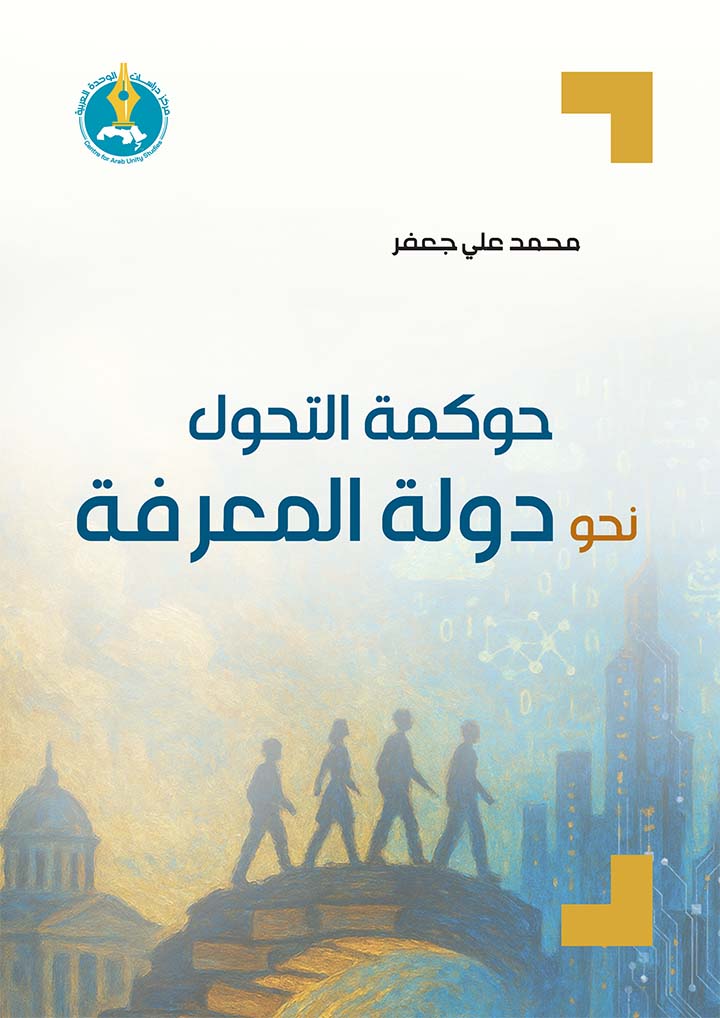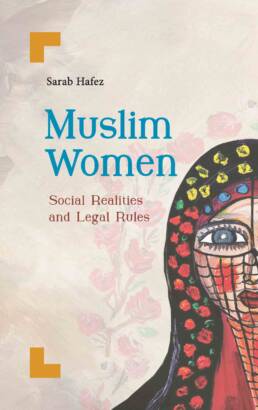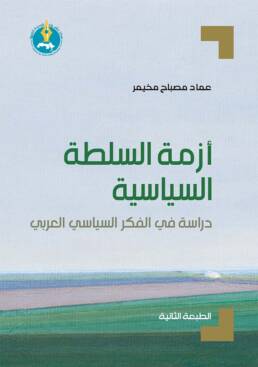The Center for Arab Unity Studies has published the book Governance of the Transition towards a Knowledge State by Dr. Mohammed Ali Jaafar.
This book is a policy guide that includes a number of options and directions that govern the strategy of transitioning to a knowledge-based state. This guide is consistent with the challenges facing governments and peoples in the knowledge era, and ensures the achievement of sustainable human development through the integrated construction of a knowledge society and its economy. The evidence presented in the book demonstrates the requirements for the process of transitioning to modernity in the state, governance, and political system. It outlines the mechanism for managing and governing the balance of political power, and for arranging national identity within an integrated and cooperative framework, based on the national interest of the political entity and the requirements for preserving its sovereignty. It also considers the challenges facing the elements of the state’s comprehensive strategic power and the components of its national security in the age of knowledge.
The book starts with a unified problem, the title of which is the method of taking the initiative to build the elements of strategic strength for the political entity, in a way that ensures its ability to continue and adapt to the challenges that target it, in light of the global transformation towards a political system governed by knowledge, as there is no escape for policy and decision makers from the moment of transformation towards an open strategic environment in which the concepts of sovereignty and development change. Cognitive leadership becomes the primary driver of political influence and economic power, and one of the decisive determinants in leading social mobility and determining the political future of peoples, according to which political leadership qualified to govern and build the most suitable human society is formed. The book’s main premise is that nations and peoples are always affected by the challenges facing their strategic environment, ultimately experiencing a crisis of transformation. This requires to manage this crisis in a manner consistent with global transformations, but within the framework of the political entity’s strategic interests and in a manner that supports its priorities, foremost among which is developing the decision-making process and restructuring the state’s future.
Add a review
You must be logged in to post a review.
You May Also Like
Arab and Islamic Countries in the American Public Opinion Polls, 1935-2018/ Vol. II: Iraq
Price range: 5 $ through 8 $
The State in the Contemporary Islamic Communities’ Thought in Morocco: Case Studies
Price range: 9 $ through 14 $
Armaments, Disarmament and International Security: Sipri Yearbook 2019
Price range: 10 $ through 16 $
Muslim Women: Social Realities and Legal Rules
Price range: 9 $ through 14 $
Partners in Crime: The British Role in the Invasion of Iraq
Price range: 6 $ through 10 $
The Crisis of Political Authority: A Study of Arab Political Thought
Price range: 10 $ through 13 $
Israeli Energy Projects in the Eastern Mediterranean and the Arab National Security Challenges
Price range: 10 $ through 11 $








